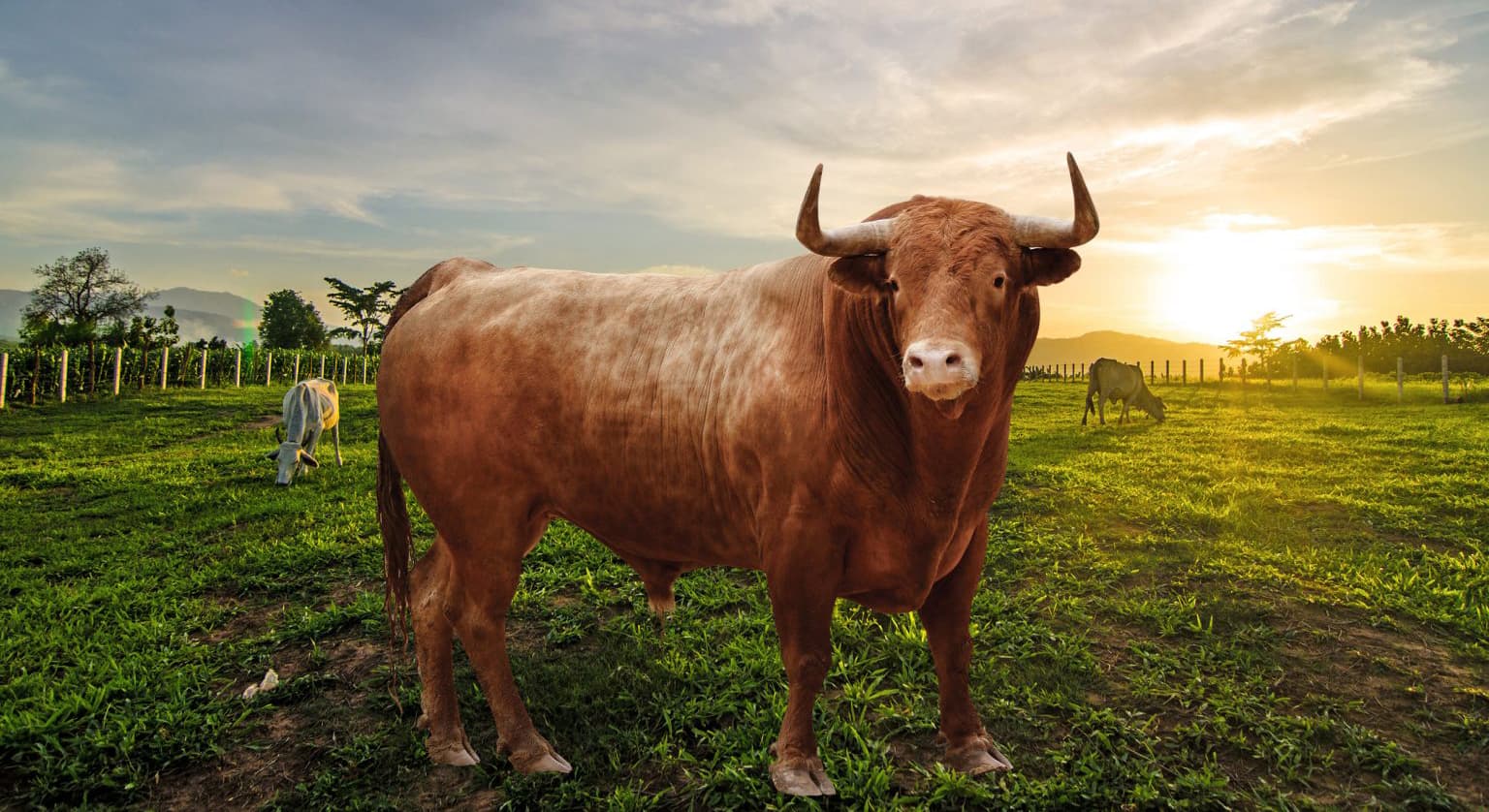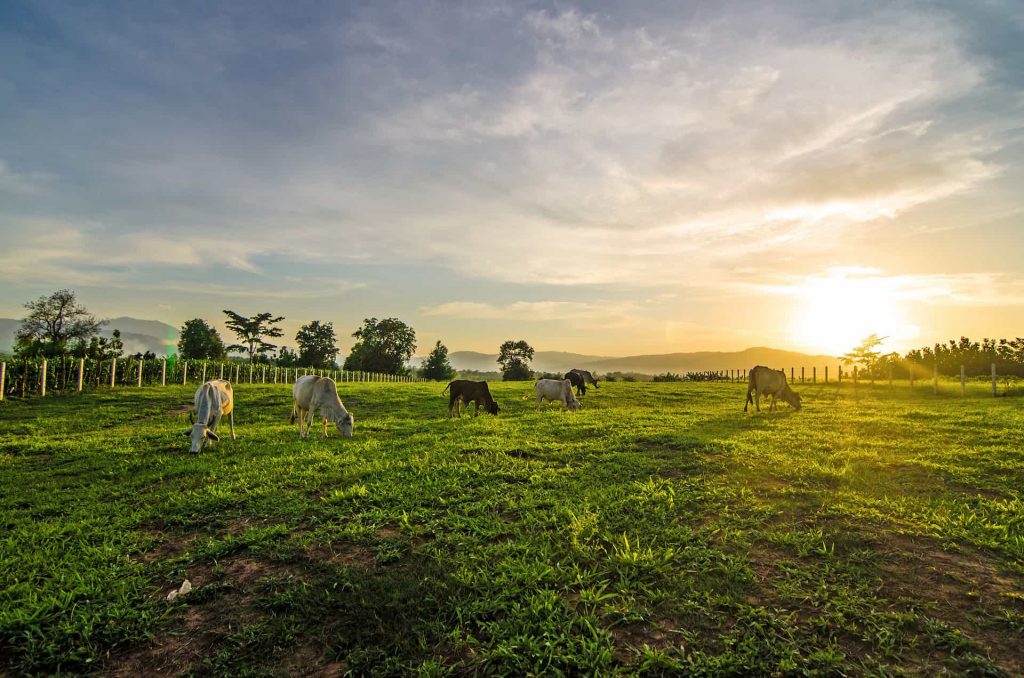
QURBAN – ISLAMIC RITUAL SACRIFICE
Sacrifice is to establish intimacy with and closeness to Allah Subhanahu wa Ta-ala.
Sacrifice is an act of worship that reminds us of Ibrahim Alaihissalam’s obedience, Ismail Alaihissalam’s submission and Hajar RadhiAllahu’anha’s consent.
The days of Eid al-Adha are basically days of piety and submission, not meat and blood. Our Lord informs us that the purpose of sacrifice is not to slaughter meat or shed blood, but to attain taqwa (piety) by saying, “Neither their meat nor blood reaches Allah. Rather, it is your piety that reaches Him.” (Hajj 22/37).
Beyond the slaughtering of an animal, offering sacrifice to Allah has deep spiritual and sublime meanings. Believers experience the peace of mind of being able to fulfil their debt of gratitude for the blessings bestowed upon them by the Almighty Creator, and find the opportunity to account for the love of wealth and worldly possessions inherent in the human soul.
WHAT EXACTLY IS A SACRIFICE?
The word ‘sacrifice’, which means ‘getting closer to Allah, what is instrumental in getting closer to Allah’, means, as a religious term, to slaughter an animal that meets certain conditions at a certain time for the purpose of worship and to slaughter the animal slaughtered in this way.

HISTORY OF SACRIFICE
The worship of sacrifice actually began with the children of Adam. Adam Alaihissalam proposed that his sons Cain and Abel offer a sacrifice to Allah Subhanahu wa Ta-ala in order to resolve the dispute between them. Cain brought a sheaf of wheat as a sacrifice. Abel, on the other hand, brought the most beautiful and fat ram from his flock and sacrificed it for Allah. Cain was a hard-natured person and Abel was a pious person. Abel's sacrifice was accepted and Cain's sacrifice was rejected. Allah mentions their story in the Holy Qur'an as follows: "Relate to them in truth ˹O Prophet˺ the story of Adam’s two sons—how each offered a sacrifice: one’s offering was accepted while the other’s was not " (Al-Ma'idah 5:27) This is the beginning of the first sacrifice in history.

SACRIFICE EXPRESSES SUBMISSION
Sacrifice is the expression in the language of state of making everything that is bestowed upon the person belong to its original owner. Sacrifice expresses the submission of the servant to his Lord. This submission was symbolized by the Prophets Ibrahim Alaihissalam and Ismail Alaihissalam. Islam means "surrender"; in other words, to walk on the right path with ihlâs (sincerity) without deviating from the direction determined by the Qur'an and Sunnah, to fulfil what Allah and His Messenger ask of us with the submission of Ismail Alaihissalam...
WHY DO WE SACRIFICE?
We sacrifice Qurban primarily to gain Allah’s love, to be safe from His wrath and to attain His mercy in the world to come.
Apart from these duties for Allah, we also have some duties towards humanity. Sacrifice is also a means of reaching out to our relatives and poor neighbours who are not financially well-off.
If the Qur’an is analysed, the social message of sacrifice will be better understood. “so they may obtain the benefits ˹in store˺ for them, and pronounce the Name of Allah on appointed days over the sacrificial animals He has provided for them. So eat from their meat and feed the desperately poor.” (Hajj 22/28.)
With the sacrifice we sacrifice, we serve our Mawla as well as our environment and our home. The purpose of social aid and the divine purpose are united in sacrifice.
We also sacrifice in order to fulfil a legitimate wish and to ask for Allah’s help in this matter. It can be seen that the reasons for sacrificing cannot be simplified.
When we are in difficult situations, of course we seek refuge in Allah and ask for His help. In return for this help, we express our gratitude to Him with a sacrifice.
We seek refuge in Allah for the prevention of a calamity that we fear may occur, for which we sacrifice a sacrifice.
We sacrifice in order to express our gratitude to Allah for some of the blessings He has bestowed upon us.
In short;
- To gain the closeness and love of Allah,
- To avoid disaster by taking refuge in Allah,
- To ensure the fulfilment of a legitimate wish with divine help,
- To thank Allah on our joyous days,
- We can sacrifice to ask for forgiveness for a mistake we have done knowingly or unknowingly.
SOCIAL DIMENSION OF SACRIFICE
There is no doubt that sacrifice has many material benefits besides its spiritual benefits. The following hadith of our Prophet summarises our subject:
The Messenger of Allah Sallallahu Alaihi Wasallam said on an Eid al-Adha,
- He who sacrifices (animal) among you nothing should be left in his house (out of its flesh) on the morning of the third day.
When the Companions came the following year,
- They asked, “O Rasûlullah! Are we going to distribute (the meat of the sacrifice) as we did last year?
The Messenger of Allah replied:
- This year, eat for yourselves, feed others and provide for your families. Because last year there was hardship among the people. That is why I asked you to help people that year.
Islam wants the bond of brotherhood between individuals to be preserved and maintained in a strong way. In this respect, sacrificing is an important way to achieve the consent of Allah Almighty, to help people and to ensure social solidarity.
Offering the sacrifice to people, friends, neighbours, the poor and the needy, and thus mingling with the members of the society is a good example of social solidarity. This is an act of worship that unites the society, which is the envy of other nations and is unprecedented.


THE VIRTUE OF SACRIFICE
The Messenger of Allah Sallallahu Alaihi Wasallam has expressed the virtuous deed for a well-off person to do on Eid al-Adha as follows:
“The son of Adam does not do any deed on the Day of Sacrifice that is dearer to Allah than shedding blood. It will come on the Day of Resurrection with its horns and cloven hoofs and hair. Its blood is accepted by Allah before it reaches the ground. So be content when you do it.”
On the day of Eid al-Adha, the Messenger of Allah Sallallahu Alaihi Wasallam said to Fatima RadhiAllahu’anha,
- O Fatima! Get up and go to your sacrifice and witness (its slaughter)! For with the first blood that falls from it, Allah forgives your past sins.
Fatima RadhiAllahu’anha asked,
- ‘O Messenger of Allah, is this situation special only for us or does it apply to all believers?
The Messenger of Allah Sallallahu Alaihi Wasallam expressed,
- For all believers.
THE RULING OF SACRIFICE
According to the Hanafi madhhab, it is obligatory for rich people who can afford to sacrifice to do so.
(According to the Shafi’i madhhab, sacrificing (an animal) is not obligatory, but it is an obligatory sunnah. However, according to the Shafi’i madhhab, if a person commits to sacrifice on Eid al-Adha, it is obligatory for him to sacrifice.)

WHO IS REQUIRED TO SACRIFICE?
It is a religious duty for anyone who fulfills the following conditions to sacrifice:
- To be a Muslim
- Being free. Those who are deprived of freedom, such as captives, prisoners and the like, are not required to sacrifice.
- Being rich
- Not being a traveler (Those who are on a journey are free to sacrifice or not. If they sacrifice, they will receive the reward).
According to the Hanafi madhhab, intellect and puberty are not conditions for the sacrifice to be obligatory. If the child is able to sacrifice, i.e. religiously wealthy, his/her guardian (with the child’s money) sacrifices in his/her place.
(The conditions for the sacrifice to be sunnah in Shafi’i are as follows: 1. Being a Muslim. 2. Being free. 3. To be intelligent 4. To be an adolescent 5. To be able to afford it).
According to the Shafi’i madhhab, intelligence and logic, and puberty are conditions for sacrifice. Therefore, according to this madhhab, insane and mentally ill people and young children (even if they are rich) are not obliged to sacrifice.
